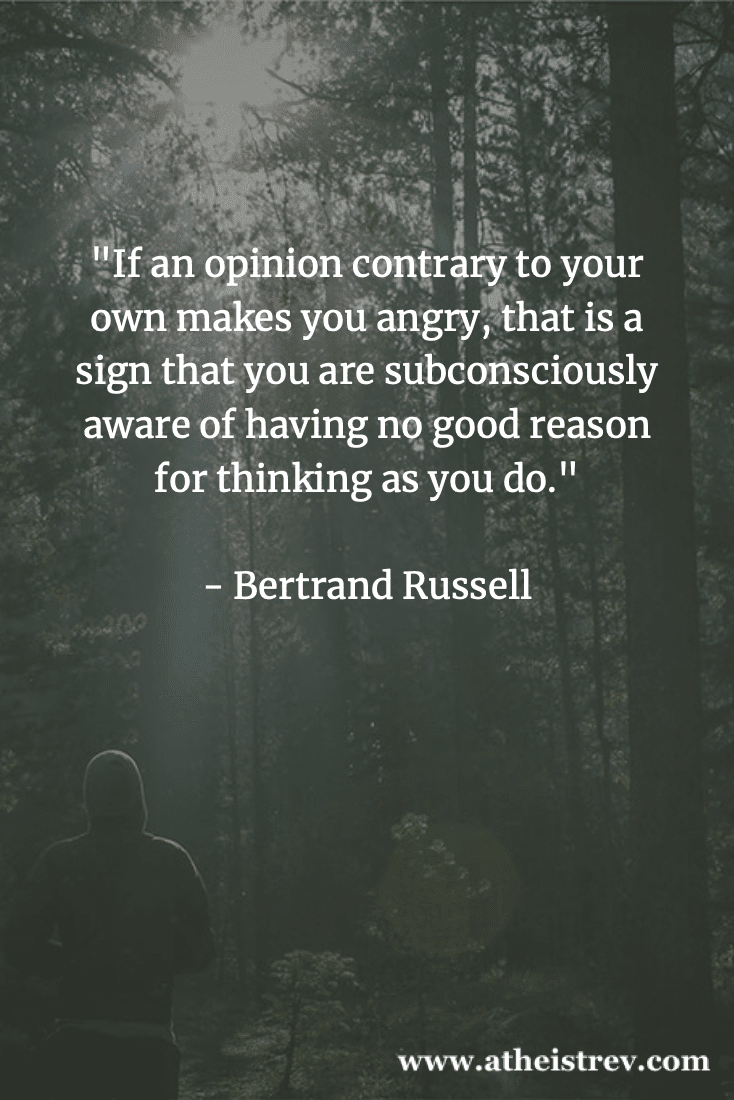As some of you know, I am a fan of Bertrand Russell's work. I think that is mostly because I discovered it at the time in my youth when I most needed it. Thus, it should come as no surprise that I agree with what he's saying here. I'm not sure this is the only reason encountering an opinion that conflicts with our own might make us angry, but this does seem to be an especially common one.
As hard as it can be sometimes to admit that we are wrong, I think it is often more difficult to admit that we might believe something without having a solid reason for doing so. Unfortunately, I think this is one of those times when our anger can limit our potential to grow, especially if we are caught off guard by this sort of thing when it happens. This reminds me that freethought is rarely easy, does not come naturally for most of us, and requires effort to sustain.
In many cases, the best we can do is critically evaluate what we believe. We can start by identifying what it is that we believe. We can then move to asking ourselves how we came to believe it and why we still do believe it. Do we have valid reasons for doing so? Are they the kind of reasons that might make sense to others? Or do we just believe it today because we've believed it for a long time and never really reflected on it? If we did this sort of thing on a regular basis, we might be better equipped to explain our beliefs to others, defend then when necessary, and even promote our beliefs to a wider audience when advantageous to do so.
These days, I see far too many people using their various identities as a poor excuse not to critically examine their beliefs. How many times have you observed someone claiming "I believe x because I am y" as if that was somehow sufficient justification for x? Assuming y is a freely chosen identity, it merely invites questions about why the person has chosen to embrace their identity as y. And if y is not a freely chosen identity (e.g., atheism), then it is rarely evident what it might have to do with x. If self-understanding and the growth that often comes from it are among our goals, we can and should examine our beliefs without invoking the shield of various identities.
Similarly, claims that we believe what we believe because of our "lived experience" are appealing but incomplete. Our experiences undoubtedly affect us, but our interpretation of our experiences may be even more important in determining how they affect us. Even when it comes to something as personal as our opinions, some are better than others. Striving to improve their quality would seem to be one of the many helpful ways we might grow. Critically examining our beliefs seems like a great place to start.
